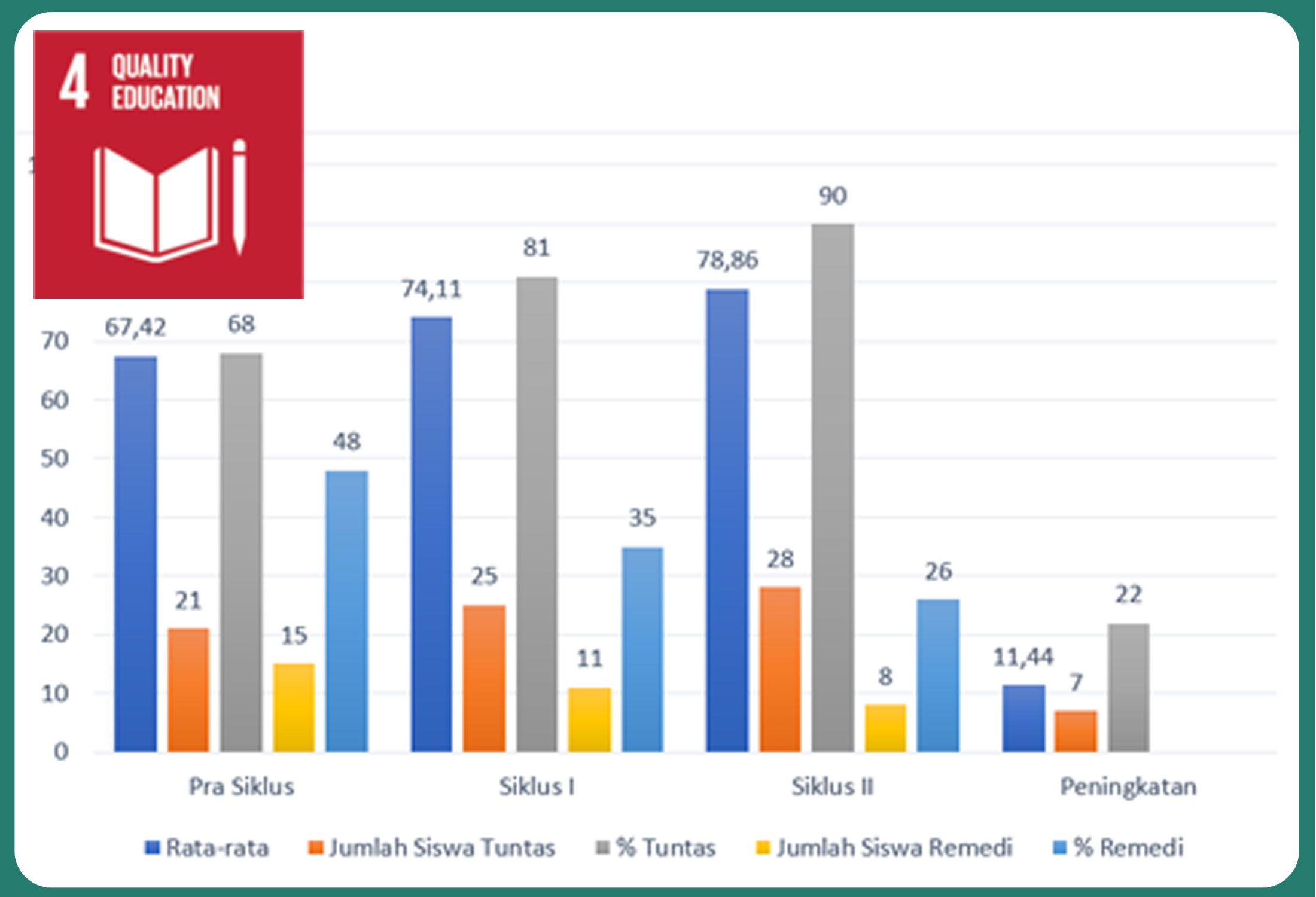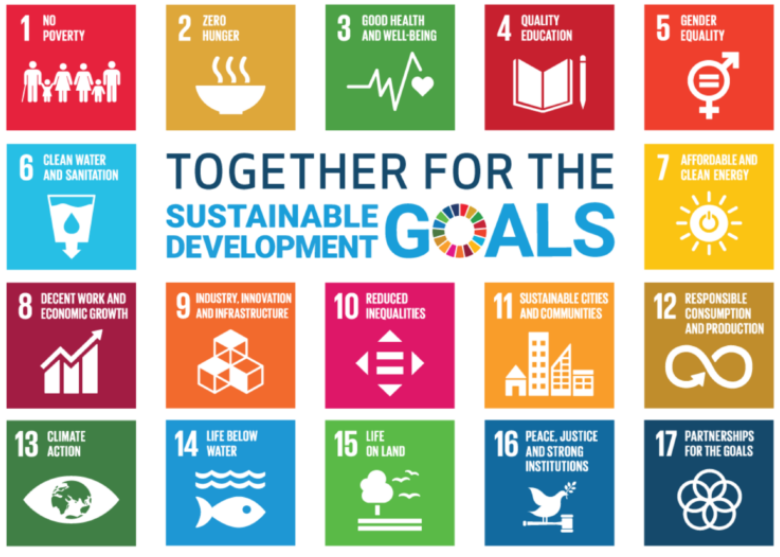Improving Learning Engagement and Performance through Google Sites-Based Project Learning in Vocational Network Education
DOI:
https://doi.org/10.24036/javit.v5i1.223Keywords:
Google Sites, Project-Based Learning, Learning Outcomes, Vocational Education, Digital MediaAbstract
The advancement of web-based technology has opened new opportunities for enhancing the quality of teaching and learning in vocational education. This study aims to examine the effectiveness of Google Sites as a digital learning media combined with the Project-Based Learning (PjBL) model in improving student learning outcomes in the subject of Network System Administration. Conducted using Classroom Action Research (CAR) in two cycles, this study involved 31 students from class XI TKJ at SMKN 5 Padang. Data were collected through observation, documentation, and learning achievement tests. The findings show a consistent increase in students’ learning engagement and performance. The average learning outcomes rose from 67.42 (pre-cycle) to 78.86 (cycle II), with student mastery increasing from 68% to 90%. The integration of Google Sites facilitated independent and flexible access to learning materials, while the PjBL model encouraged collaborative problem-solving and practical skill development. These results suggest that the combination of interactive digital media and project-based instruction significantly enhances the effectiveness of vocational learning environments.
Downloads
References
M. A. Mohamed Hashim, I. Tlemsani, and R. Matthews, “Higher education strategy in digital transformation,” Educ. Inf. Technol., vol. 27, no. 3, pp. 3171–3195, Apr. 2022, https://doi.org/10.1007/s10639-021-10739-1.
C. Wang, X. Chen, T. Yu, Y. Liu, and Y. Jing, “Education reform and change driven by digital technology: a bibliometric study from a global perspective,” Humanit. Soc. Sci. Commun., vol. 11, no. 1, pp. 1–17, Dec. 2024, https://doi.org/10.1057/s41599-024-02717-y.
A. Pregowska, K. Masztalerz, M. Garlińska, and M. Osial, “A worldwide journey through distance education—from the post office to virtual, augmented and mixed realities, and education during the covid-19 pandemic,” Educ. Sci., vol. 11, no. 3, p. 118, Mar. 2021, https://doi.org/10.3390/educsci11030118.
Yoto, A. Suyetno, A. P. Wibawa, Paryono, and A. Romadin, “Unveiling the Distinctive Impact of Vocational Schools Link and Match Collaboration with Industries for Holistic Workforce Readiness,” Open Educ. Stud., vol. 6, no. 1, Jan. 2024, https://doi.org/10.1515/edu-2024-0045.
Abdel Hamid M.S. Esmail and Zahid M. Khan, “Alignment of vocational education curricula with job requirements in industrial sector: Analysis study,” World J. Adv. Res. Rev., vol. 21, no. 3, pp. 2303–2313, Mar. 2024, https://doi.org/10.30574/wjarr.2024.21.3.1002.
U. Abubakar, O. O. Ogunlade, and H. A. Ibrahim, “The influence of technology-integrated curriculum resources on student engagement and academic achievement in higher education,” Adv. Mob. Learn. Educ. Res., vol. 4, no. 2, pp. 1208–1223, Dec. 2024, https://doi.org/10.25082/AMLER.2024.02.014.
J. Hermosa, “Providing Technical Support for Underperforming Students to Enhance Satisfaction and Engagement in Social Studies,” SSRN Electron. J., vol. 19, no. 2, pp. 513–521, Jun. 2024, https://doi.org/10.2139/ssrn.4880059.
C. Sikubwabo, J. C. Ndayisaba, F. Uwizeyimana, and J. C. Ngabonziza, “Understanding Root causes of Low Academic Engagement among University Students and Strategies for Improvement: A case of Rwanda,” ULK Sci. J., vol. 46, no. 1, p. 2025, Feb. 2025, https://doi.org/10.4314/ulksj.v46i1.2.
Z. I. Saputri, “A Comprehensive Exploration of Effective Learning Strategies Through Engaging and Interactive Kahoot Games in Educational Setting,” Indones. Res. J. Educ., vol. 4, no. 1, pp. 327-331–327 – 331, May 2024, https://doi.org/10.31004/irje.v4i1.456.
E. Choustoulakis, C. Garas, and F. Paraskeva, “Designing A Project-Based E-Learning Course For Enhancing English Language Learning, Participation, And Peer Collaboration Among Primary School Pupils,” INTED2025 Proc., pp. 6877–6887, Mar. 2025, https://doi.org/10.21125/INTED.2025.1766.
A. Saad and S. Zainudin, “A review of teaching and learning approach in implementing Project-Based Learning (PBL) with Computational Thinking (CT),” Interact. Learn. Environ., Nov. 2024, https://doi.org/10.1080/10494820.2024.2328280.
W. Huang, X. Li, and J. Shang, “Gamified Project-Based Learning: A Systematic Review of the Research Landscape,” Sustain., vol. 15, no. 2, p. 940, Jan. 2023, https://doi.org/10.3390/su15020940.
F. T. Leow and M. Neo, “Critical Factors for Enhancing Students’ Collaborative Learning Experiences in a Project-based Connectivism Learning Environment,” Int. J. Learn. Teach. Educ. Res., vol. 22, no. 7, pp. 388–410, Jul. 2023, https://doi.org/10.26803/ijlter.22.7.21.
R. Fadli et al., “Effectiveness of Mobile Virtual Laboratory Based on Project-Based Learning to Build Constructivism Thinking,” Int. J. Interact. Mob. Technol., vol. 18, no. 6, pp. 40–55, Mar. 2024, https://doi.org/10.3991/ijim.v18i06.47643.
A. AZZOUZ and M. HAMOU, “A Crowdsourcing Mobile Application and Interactive Learning Analytics Dashboard to enhance Project-Based Learning supported by technology.,” 2022, Accessed: Jul. 02, 2025. [Online]. Available: http://dspace.univ-tiaret.dz:80/handle/123456789/5546.
Z. Dai et al., “The role of project-based learning with activity theory in teaching effectiveness: Evidence from the internet of things course,” Educ. Inf. Technol., vol. 30, no. 4, pp. 4717–4749, Sep. 2024, https://doi.org/10.1007/s10639-024-12965-9.
A. F. Saad, “An Exploratory Study Regarding the Use of Blogs in a Project Management Approach in Teaching and Learning for the Case of ‘Students at Risk,’” Online Submiss., 2021, Accessed: Jul. 02, 2025. [Online]. Available: https://eric.ed.gov/?id=ED621778.
Y. Song, “Improving primary students’ collaborative problem solving competency in project-based science learning with productive failure instructional design in a seamless learning environment,” Educ. Technol. Res. Dev., vol. 66, no. 4, pp. 979–1008, 2018, https://doi.org/10.1007/s11423-018-9600-3.
A. K. Gupta, V. Aggarwal, V. Sharma, and M. Naved, “Education 4.0 and web 3.0 technologies application for enhancement of distance learning management systems in the Post-COVID-19 era,” Role Sustain. Artif. Intell. Educ. Improv., pp. 66–86, Nov. 2023, https://doi.org/10.1201/9781003425779-4.
A. Giannakoulopoulos, M. Pergantis, and A. Lamprogeorgos, “User Experience, Functionality and Aesthetics Evaluation in an Academic Multi-Site Web Ecosystem,” Futur. Internet, vol. 16, no. 3, p. 92, Mar. 2024, https://doi.org/10.3390/fi16030092.
E. Williamson, “The Effectiveness of Project-Based Learning in Developing Critical Thinking Skills among High School Students,” Eur. J. Educ., vol. 1, no. 1, pp. 1–11, 2023, Accessed: Jul. 02, 2025. [Online]. Available: https://forthworthjournals.org/journals/index.php/EJE/article/view/26.
V. Vaithianathan, N. Subbulakshmi, S. Boopathi, and M. Mohanraj, “Integrating project-based and skills-based learning for enhanced student engagement and success: Transforming higher education,” Adapt. Learn. Technol. High. Educ., pp. 345–372, Jan. 2024, https://doi.org/10.4018/979-8-3693-3641-0.ch015.
U. Eswaran, “Project-based learning: Fostering collaboration, creativity, and critical thinking,” Enhancing Educ. With Intell. Syst. Data-Driven Instr., pp. 23–43, Jan. 2024, https://doi.org/10.4018/979-8-3693-2169-0.ch002.
N. Aboobaker and M. K.H, “Effectiveness of web-based learning environment: role of intrinsic learning motivation, computer self-efficacy, and learner engagement,” Dev. Learn. Organ., vol. 36, no. 4, pp. 13–16, May 2022, https://doi.org/10.1108/DLO-07-2021-0139.
M. H. Dehbozorgi and D. Contestabile, “Bridging the Skill Gap in Engineering Education: Designing Learning Factories for Industry 4.0 and 5.0,” 2024, Accessed: Apr. 27, 2025. [Online]. Available: https://www.politesi.polimi.it/handle/10589/227315.
N. Adera, “Innovative Learning Spaces and Blended Learning: Quest for 21st Century Competency Teaching and Learning Approaches,” Creat. Dyn. Sp. High. Educ. Mod. Shifts Policy, Competencies, Gov., pp. 139–173, Jan. 2024, https://doi.org/10.4018/979-8-3693-6930-2.ch006.
S. Palieraki and K. Koutrouba, “Differentiated instruction in information and communications technology teaching and effective learning in primary education,” Eur. J. Educ. Res., vol. 10, no. 3, pp. 1487–1504, 2021, https://doi.org/10.12973/eu-jer.10.3.1487.
A. Wilken, “The Modern High School Learning Environment: A Study of Differentiated Learning and Flexible Grouping Strategies,” Master’s Theses Capstone Proj., Apr. 2023, Accessed: Jul. 02, 2025. [Online]. Available: https://nwcommons.nwciowa.edu/education_masters/479.
J. Allison, “Simulation-Based Learning via Cisco Packet Tracer to Enhance the Teaching of Computer Networks,” Annu. Conf. Innov. Technol. Comput. Sci. Educ. ITiCSE, vol. 1, pp. 68–74, Jul. 2022, https://doi.org/10.1145/3502718.3524739.
X. Wang, L. Liu, L. Chen, D. Li, Y. Miao, and Y. Bai, Resolving packets from counters: enabling multi-scale network traffic super resolution via composable large traffic model. 2025.
W. Xiaoya, “The Reflective Teaching Practice of Teachers Based on Optimal Teaching Quality.,” Int. J. Emerg. Technol. Learn., vol. 17, no. 15, pp. 156–170, 2022, https://doi.org/10.3991/ijet.v17i15.33757.
S. Meng, “Enhancing Teaching and Learning: Aligning Instructional Practices with Education Quality Standards,” Res. Adv. Educ., vol. 2, no. 7, pp. 17–31, Jul. 2023, https://doi.org/10.56397/rae.2023.07.04.
R. Meylani, G. G. Bitter, and J. M. Legacy, “Impacts of Professional Development and Implementation Fidelity on Online Middle School Mathematics: a Quasi-Experimental Quantitative Study,” Turkish Online J. Distance Educ., vol. 26, no. 2, pp. 90–119, Apr. 2025, https://doi.org/10.17718/tojde.1484344.
S. M. Kostaki and M. Linardakis, “From doubt to adoption: impact of a STEAM-based intervention on teachers’ perceptions and use of digital learning objects,” J. Comput. Educ., pp. 1–36, Jun. 2025, https://doi.org/10.1007/s40692-025-00365-y/metrics.
T. Rocha, C. Mendes, and W. D. L. Wardhani, “Assess the Impact of a Project-Based Learning Approach on the Development of 21st Century Skills,” Lingeduca J. Lang. Educ. Stud., vol. 4, no. 1, pp. 32–41, Apr. 2025, https://doi.org/10.70177/lingeduca.V4I1.2226.

Downloads
Published
How to Cite
Issue
Section
License
Copyright (c) 2025 Wici Aan Savitri

This work is licensed under a Creative Commons Attribution 4.0 International License.










